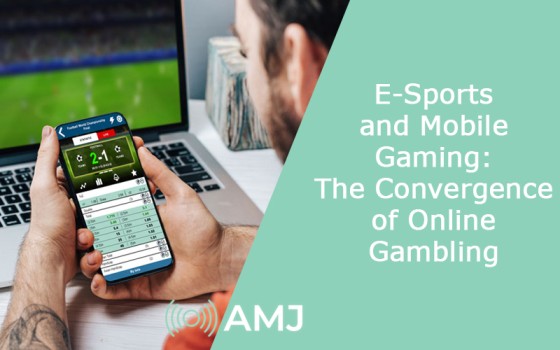Over the past decade, the most recent technological advances have led to the development of a phenomenon called convergence, that is, the convergence of gambling and video games.
The development of this phenomenon is related to the enormous changes in the gaming market, namely the expansion of online connectivity, the integration on social network platforms, the monetization of virtual goods, the use of players’ sensitive data to drive micro-transactions, the introduction of these activities in mobile devices, and finally the increased popularity of the smartphone as a gaming platform.
Contents
The types of convergence
The Morgan Stanley Research Report distinguished five main types of convergence between video game and gambling:
- the introduction of gambling elements into social media games
- the use of social gaming features on online gambling sites
- the introduction of the opportunity to win valuable items within video games
- the operation by the same operator of gambling sites and sites that offer similar gaming activities, but in which the investment of real money is not required
- cross-marketing of online gambling sites to social casino players
Some examples of this convergence phenomenon are in-game currencies, social casinos, loot boxes, and eSports.
Gambling and In-Game Currencies
The ways in which purchases are made and the currencies used seem to play an important role in the ways in which people become involved in online gaming.
While in some video games purchases are made directly with real-world currency, such as in Overwatch and Hearthstone, many others use different forms of scrip: an “intermediary” in-game currency that can be purchased directly with real money or earned by players in-game.
Payment through different forms of currency is a common feature of gambling activities. Indeed, casino chips represent exactly that.
One might speculate that the use of in-game currencies could be linked to gambling-related harms as a product of misjudgments.
For example, it has been observed that individuals tend to spend more when using the game’s own currencies rather than cash, and similarly, it has been shown that poker players bet more money when using chips rather than when using real-world currency.
It seems possible that this mechanism of paying with in-game currency may influence players to spend uncontrollably.
Gambling and Social Casinos
Social casinos, for example DoubleDown Casino, are online gambling simulation sites or demo games designed to allow people to play using virtual currency.
These gambling-themed video games on social media platforms are free (initially) and do not provide monetary rewards, but offer in-game purchases to unlock extra features or to continue playing.
For people with gambling problems, social casinos appear to be associated with an increased desire to gamble.
From a behavioral economics perspective, these gambling simulation situations may alter the perception of gain relative to the aversion function associated with losing money.
In fact, players do not experience the loss of money because virtual currency is free and unlimited, and they can continue to experience the pleasure of making gains, for example, by purchasing more virtual currency and unlocking more rewards.
Gambling without age limits
Of concern to mental health professionals are the lack of age limits for playing social casinos-for example, there are some video games where the recommended age stated is 3+, as in PlayStation 2’s Casino Challenge-and the fact that many sites simulate gambling activities with unusually high win rates to keep players involved.
Other concerns include the possibility that such situations:
- facilitate entry to financial gambling
- allow interaction with a social network of experienced gamblers who provide incentives for the game itself
- allow covert and excessive use of these activities
In other words, the structural features of social casinos closely mimic those of traditional gambling games and can serve as a gateway, precursor, and/or training ground for gambling.
Such games can normalize gambling and, where win rates exceed the norm, can increase the sense of confidence in being successful and safe at online gambling.
Loot Boxes
Loot boxes consist of purchasing through real money “keys” to open virtual chests in order to receive items and rewards in a completely random manner that would otherwise be difficult or even impossible to obtain in the video game.
Items that can be “won” in this mode include basic customization options (such as clothing or accessories) for the avatar or functional benefits and in-game skills that can help in progressing more effectively and leveling up.
Since both common and very rare items can be obtained, players, in the hope of obtaining the latter, are incentivized to spend an increasing amount of money.
Loot Box and Gambling
There are several studies that highlight the presence of an association between the loot box phenomenon and problem gambling, and that this association would appear to be stronger among adolescents and young adults.
Loot box purchasers play video and online gambling games more frequently, report longer gaming sessions, and exhibit higher levels of problem behaviors related to both activities, as well as greater psychological distress than those who do not purchase loot boxes.
There are obvious similarities, both structurally and psychologically, with the practice of gambling, such as the fact that the final outcome is determined by chance or being overly absorbed in the specific activity.
That of the loot box is, therefore, a phenomenon for which precise and comprehensive regulation would be necessary in order to limit the damage caused by this increasingly popular practice among adolescents.
According to the U.K. Gambling Commission and the gaming industry, loot boxes do not constitute gambling per se, but despite this a number of jurisdictions, including Belgium and the Netherlands, have concluded that loot boxessatisfy the established criteria for gambling and have declared them illegal (Chansky & Okerberg, 2019).
In addition, some purchase systems within video games could be considered “unfair or exploitative” because there is limited or no consumer protection, particularly for vulnerable populations such as children, adolescents, and problem gamers.
The eSports
Another example of convergence consists of the eSports phenomenon, which has gathered a huge following through online streaming platforms such as Twitch and YouTube.
ESports are basically competitive video games coordinated by different leagues. Viewers can watch professional players compete against each other in a variety of group games.
Although a relatively new phenomenon, the popularity of eSports has seen tremendous growth.
Spectators filling major stadiums to watch competitions and with a worldwide audience following them via streaming video, surpassing 450 million viewers in 2019, with revenues of $1.1 billion.
Among the foremost scholars in the field, Griffiths has argued that there may be motivational differences between casual/recreational players and those seeking to achieve high levels of competition.
According to the author, there is indeed a parallel between professional eSports gamers and professional gamblers, i.e., poker players, since similarities have been found regarding:
- to the excessive time spent playing video games or gambling
- to the problems associated with the phenomenon of “near winnings”
- to the use of sophisticated graphics, colors, and sounds
- to the perceived skill involved in both activities
Closing Thoughts
In conclusion, the convergence of online gambling with e-sports and mobile gaming presents a multifaceted landscape shaped by technological advancements. The integration of gambling elements into social media games, the rise of social casinos, the controversial presence of loot boxes, and the flourishing realm of eSports all contribute to a complex relationship between gaming and gambling.
The use of in-game currencies and the lack of age restrictions in social casinos raise concerns about potential harms, while studies highlight associations between loot box purchases and problem gambling, particularly among adolescents. As the eSports phenomenon gains global traction, parallels between professional gamers and gamblers emerge. The intricate web of connections between these realms underscores the need for thoughtful regulation to address potential risks and protect vulnerable populations, ensuring a balanced and responsible approach to the evolving intersection of gaming and gambling.












![Index of Money Heist [Season 1, 2, 3 & 4 – All Episodes, Cast and Plot] Index of Money Heist](https://www.asiamediajournal.com/wp-content/uploads/2021/05/Index-of-Money-Heist-3-100x70.jpg)